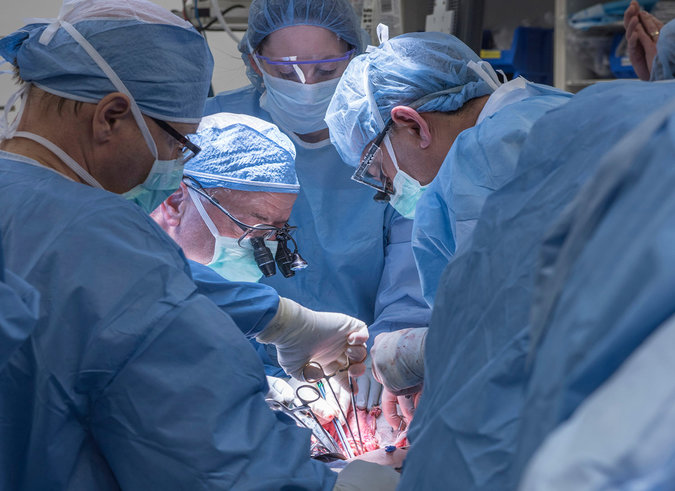-
Tips for becoming a good boxer - November 6, 2020
-
7 expert tips for making your hens night a memorable one - November 6, 2020
-
5 reasons to host your Christmas party on a cruise boat - November 6, 2020
-
What to do when you’re charged with a crime - November 6, 2020
-
Should you get one or multiple dogs? Here’s all you need to know - November 3, 2020
-
A Guide: How to Build Your Very Own Magic Mirror - February 14, 2019
-
Our Top Inspirational Baseball Stars - November 24, 2018
-
Five Tech Tools That Will Help You Turn Your Blog into a Business - November 24, 2018
-
How to Indulge on Vacation without Expanding Your Waist - November 9, 2018
-
5 Strategies for Businesses to Appeal to Today’s Increasingly Mobile-Crazed Customers - November 9, 2018
Cleveland surgeons perform nation’s first uterus transplant
For some women with a rare condition that has left them with little hope of bearing children, news of the first ever uterus transplant in the USA has offered hope that they may be able to carry children of their own.
Advertisement
The surgery took about nine hours, according to the hospital.
Cleveland Clinic has performed the country’s first successful uterus transplant and this may be good news for women with fertility issues.
Cleveland Clinic will be making no further comments at this time.
Below is an illustration of the procedure courtesy of the Cleveland Clinic.
One important difference: “Unlike any other transplants, they are ‘ephemeral,”‘ Tzakis said past year in a statement announcing the study.
The Cleveland Clinic estimates that 3 percent to 5 percent of women worldwide lack a healthy uterus. Scientists estimate that about 500,000 women in the U.S. are transplant candidates.
“The procedure is groundbreaking for the United States”, said Dr. Anthony Vintzileos, head of obstetrics and gynecology at Winthrop-University Hospital in Mineola, N.Y. In September 2014, Malin Stenberg, 36, became the first person on the planet to give birth after receiving a new uterus, an event described as a breakthrough for infertile women. “Uterine transplant may allow these women to have children”.
She will continue to take anti-rejection drugs, and the baby will likely to be delivered via cesarean section.
Then, the patient would be subjected to monthly biopsies and have an estimated waiting time of 12 months before trying to conceive via IVF only.
A uterus transplant is not necessary for life so, to avoid the need for life-long anti-rejection medication, the transplanted uterus will be removed once the recipient has had one or two babies. Additionally, he found normal growth through adulthood for rat offspring produced as a result of a womb transplant. Other studies find a higher risk of prematurity and pre-eclampsia in women taking anti-rejection drugs, however the rates were similarly high among this group of women before they began taking the drugs.
Advertisement
According to Dr. Susan Newman writing for Psychology Today, adoption is increasingly “snarled, discouraging, and costly” and that’s true whether you adopt in the USA or internationally.





























